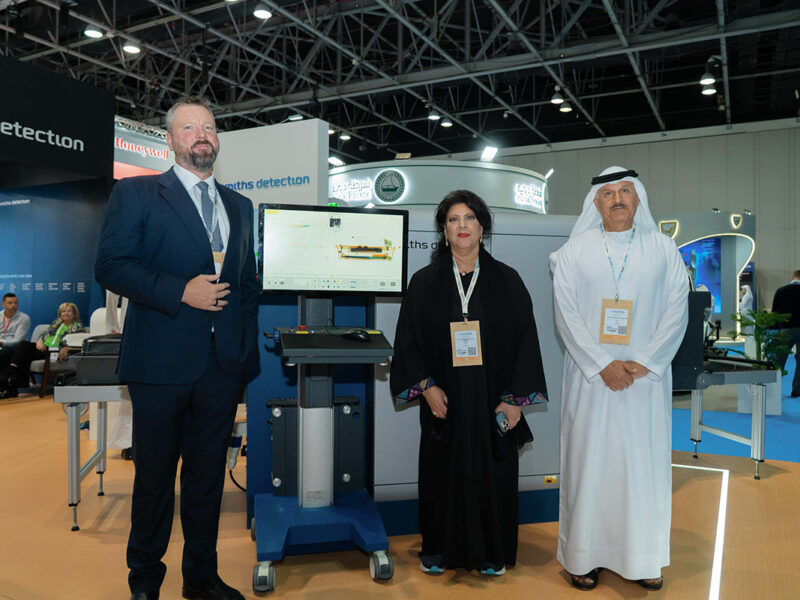More Dubai investors are considering investments in Real Estate Investment Trusts (REITs) than ever before, industry insiders revealed.
“Overall interest in REIT investments across the UAE, including Dubai, has been steadily increasing,” said Ahmed Abou El Naga, Head of Institutional Sales, Penthouse.ae – powered by real estate firm Metropolitan Group.
This comes almost 8 years since the UAE government implemented legal and regulatory frameworks to permit investments in REITs.
“For investors seeking to diversify their portfolios, REITs offer a compelling alternative. [They] provide a stable stream of income, with returns on investments typically around 8 percent,” he added.
Sanjay Vig, MD Direct Investments at Dubai-based Al Mal Capital, also confirmed the trend.
“There has been a notable increase in interest in REIT investments among UAE residents, especially in Dubai, driven by the region’s economic stability, improved regulatory frameworks, and attractive yields,” he told Arabian Business.
Dubai’s property market has long attracted investors from across the GCC and beyond, with high-profile new developments and extensive government initiatives aiming to transform the emirate into a global business and tourism hub. However, in an environment of rising interest rates and moderating housing price growth, real estate investors are exploring creative ways to maintain healthy returns. This is leading many to consider real estate investment trusts (REITs).
What are REITs?
REITs are companies that own and manage income-producing property assets. They allow investors to gain exposure to real estate without directly owning physical property. Like regular stocks, they trade on major stock exchanges, hence providing daily liquidity. They also distribute most of their income as shareholder dividends.
According to Al Mal Capital’s Vig, investing in REITs offers an accessible entry point into the real estate market, enabling investors to gain exposure to a diversified portfolio of properties without the need for significant capital or the hassles of property management.
“REITs typically offer attractive dividend yields, providing investors with a regular income stream that can be particularly appealing in low-interest-rate environments. Listed REITs are also a significantly more liquid asset when compared with owning property, as they are traded on major stock exchanges, allowing investors to easily buy and sell shares,” he explained.
For Dubai real estate investors accustomed to infrequent transaction opportunities and illiquidity in physical properties, REITs offer a refreshing change. They can build diversified portfolios with as little as the cost of a single share, and enter or exit positions seamlessly during exchange trading hours.
“Listed REITs are also a significantly more liquid asset when compared with owning property, as they are traded on major stock exchanges, allowing investors to easily buy and sell shares,” added Vig.
Commercial vs. residential real estate

REITs allow customised real estate exposure based on property types, geographic regions, and risk profiles. Al Mal Capital’s REIT focuses on education, healthcare, and logistics assets in the UAE, strategically positioning itself to benefit from demand tailwinds.
“We remain committed to our investment strategy which eventually will see the portfolio become more diversified – entering new sectors such as healthcare and industrials,” said Vig, revealing an “optimistic” outlook for the REIT’s performance over the course of 2024.
He anticipates the interest in REITs to continue to grow, supported by the Golden Visa, growing real estate demands, and proactive government initiatives in non-oil sectors.
“With forecasts suggesting potential interest rate cuts, REITs may become even more attractive as they offer the opportunity for enhanced yields in a lower-rate environment, making them an increasingly compelling option for investors seeking both yield and diversification in their portfolios,” he added.
In order to strike the right balance between returns and long-term value creation fundamentals, investors should invest in sectors that are established with secure long-term contracts, he suggested. “All of the properties within AMCREIT’s portfolio are educational facilities, which are usually set up on a 15-plus year contract.”
Although Dubai’s luxury residential market is booming and luring investors from across the globe, commercial REITs focused on assets like malls and hospitals are a much more lucrative option for REITs as they offer stable income from long-term leases and diversified tenants, reducing risk, according to Abou El Naga.
REITs are often managed by professionals who handle operations such as tenant relations and maintenance which essentially free investors from those responsibilities.
While residential REITs are also viable, their many tenants increase management costs and vacancy risk from potential residential fluctuations which require more hands-on oversight. In this market, however, both commercial and residential REITs can be attractive options depending on risk tolerance.
Income potential
The REIT structure mandates distributing at least 80 percent of net income as dividends to shareholders. This results in substantially higher dividend yields than rental income from direct property investment.
Al Mal Capital REIT aims to pay 7 percent annually, a target it consistently achieves, according to Vig. “We remain focused on identifying and acquiring those assets that are strategically aligned with our vision of generating sustainable long-term returns.”
However, REITs also come with risks, like any investment.
“Investing in REITs does of course also carry an element of risk – as would any property transaction – as the investor is exposed to fluctuations in the real estate market, which can impact property values and rental income,” said Vig.
However, there are several metrics that prospective investors can consider such as Funds from Operations (FFO) to measure the REIT’s operating performance, the Price-to-FFO ratio to learn about the valuation of the REIT relative to its cash flow, and dividend yield to gain insight into the income potential.










